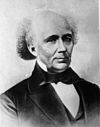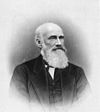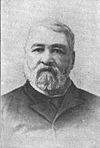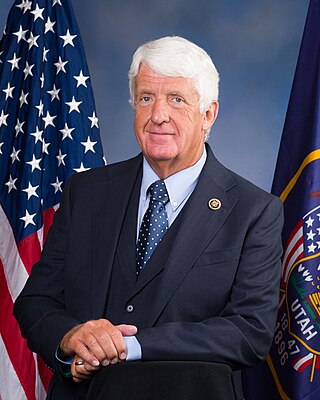
Robert William Bishop is an American politician who served as the U.S. representative for Utah's 1st congressional district from 2003 to 2021. A member of the Republican Party, he became the dean of Utah's congressional delegation after the retirement of Orrin Hatch from the U.S. Senate in 2019.

James David Matheson is an American politician who served as a United States Representative from Utah from 2001 to 2015. He represented Utah's 2nd district from 2001 to 2013 and its 4th district from 2013 to 2015 as a member of the Democratic Party. While in office, he was Utah's only congressional Democrat, and his district was one of the most Republican-leaning districts to be represented by a Democrat.

Since Utah became a U.S. state in 1896, it has sent congressional delegations to the United States Senate and United States House of Representatives. Each state elects two senators to serve for six years. Before the Seventeenth Amendment in 1913, senators were elected by the Utah State Legislature. Members of the House of Representatives are elected to two-year terms, one from each of Utah's four congressional districts. Before becoming a state, the Territory of Utah elected a non-voting delegate at-large to Congress from 1850 to 1896.

Allan Turner Howe was a U.S. Representative from Utah.

George Quayle Cannon was an early member of the Quorum of the Twelve Apostles of the Church of Jesus Christ of Latter-day Saints, and served in the First Presidency under four successive presidents of the church: Brigham Young, John Taylor, Wilford Woodruff, and Lorenzo Snow. He was the church's chief political strategist, and was dubbed "the Mormon premier" and "the Mormon Richelieu" by the press. He was also a five-time Utah territorial delegate to the U.S. Congress.

The 1882 United States House of Representatives elections were held for the most part on November 7, 1882, with five states holding theirs early between June and October. They occurred during President Chester A. Arthur's term. Elections were held for 325 seats of the United States House of Representatives, representing 38 states, to serve in the 48th United States Congress. They were the first elections after reapportionment following the 1880 United States census, increasing the size of the House. Special elections were also held throughout the year.
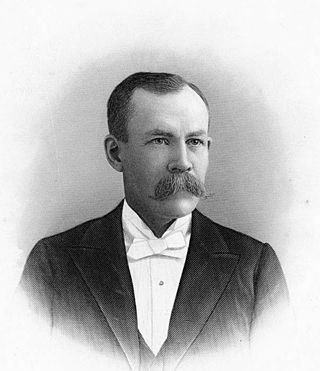
Joseph Lafayette Rawlins was a delegate to the U.S. Congress from Utah Territory and a Senator from Utah after statehood was achieved.

Frank Jenne Cannon was the first United States Senator from Utah, who served from 1896 to 1899.
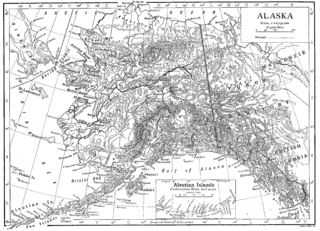
Alaska Territory's at-large congressional district was a congressional district created in 1906 to represent the District of Alaska, which was reorganized into the Alaska Territory in 1912. After Alaska's admission to the Union as the 49th state by act of Congress on January 3, 1959, this district evolved into Alaska's at-large congressional district.

William Orton was an American Democratic politician who served as a member of the United States House of Representatives from Utah from 1991 to 1997.

Howard Curtis Nielson was an American politician in the Republican Party. From 1983 to 1991, Nielson represented Utah's 3rd congressional district in the United States House of Representatives.
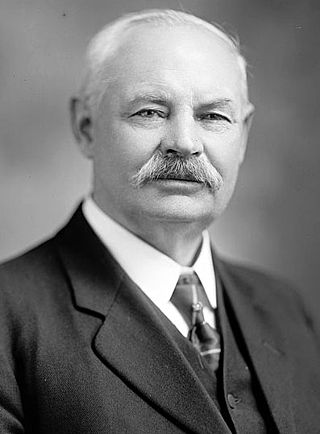
Jacob Johnson was a U.S. Representative from Utah.
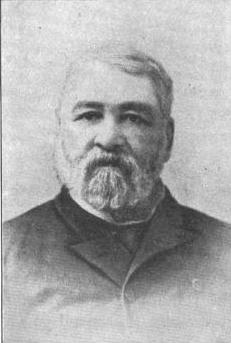
John Fitch Kinney was a prominent American attorney, judge, and Democratic politician. He served as Justice of the Supreme Court of Iowa, twice as Chief Justice of the Supreme Court of the Territory of Utah and one term as the Territory of Utah's Delegate in the House of Representatives of the 38th Congress.

John Thomas Caine was a delegate to the United States House of Representatives from the Territory of Utah.

William Henry Hooper was a U.S. Congressional delegate from the Territory of Utah, United States.

New Mexico Territory's at-large congressional district is an obsolete congressional district representing the New Mexico Territory, which was created in 1850. After New Mexico's admission to the Union as the 47th state by act of Congress on January 6, 1912, this district was dissolved and replaced by New Mexico's at-large congressional district.

Ludmya "Mia" Love is an American political commentator and former politician who served as the U.S. representative for Utah's 4th congressional district from 2015 to 2019. A Haitian American, she was the first black person elected to Congress from Utah, the first Haitian-American elected to Congress, and the first black woman elected to Congress as a Republican.

The 2012 United States House of Representatives elections in Utah were held on Tuesday, November 6, 2012 and elected the four U.S. representatives from the state of Utah, an increase of one seat in reapportionment following the 2010 United States census. The elections coincided with the elections of other federal and state offices, including a quadrennial presidential election and an election to the U.S. Senate. Primary elections were held on June 26, 2012.

Blake David Moore is an American politician and former diplomat from the state of Utah. He is the U.S. representative for Utah's 1st congressional district, serving since January 2021. Since November 8, 2023, he has been vice chair of the House Republican Conference.
